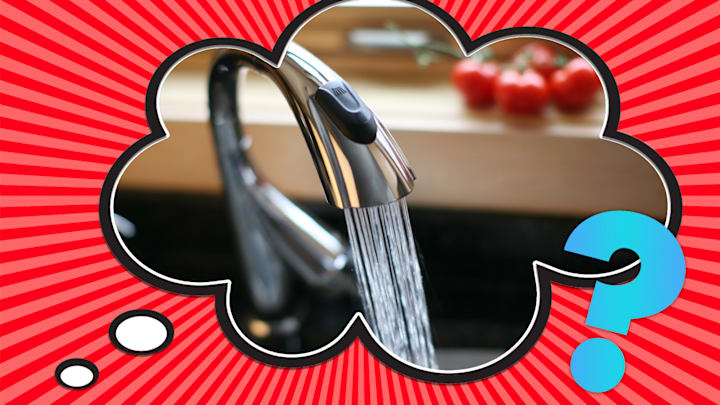“Oh, I have hard water,” someone at a somewhat dull party might say, and you might nod, as though you understand the gravity of the situation. Then you may begin to wonder: Do I have hard water? What are the consequences of that? Is it drinkable? How soon can I leave this party?
So what exactly is “hard” water, and how does it actually differ from “soft” water? Also, what counts for just plain water?
Hardness is defined by the minerals the water contains as a result of how it’s sourced. Groundwater sourced near porous rocks, for example, will contain more minerals, while water from glaciers has almost none. If your water picks up calcium and magnesium in large amounts en route to your tap, it’s considered hard water. Health departments often assess hardness by measuring the milligrams of calcium carbonate per liter. According to the U.S. Geological Survey, anything below 60 mg/L is soft, up to 120 mg/L is moderately hard, 121 to 180 is is the hard stuff. Over 180 is considered very hard.
Is it harmful? No, but it can have annoying effects. Hard water is safe to drink and may even be beneficial to someone who is mineral-deficient. But that same water may prove too harsh for cleaning purposes, particularly when it comes to showering: The minerals can be irritating to skin and hair, stripping it of oils. It can also make washing soap off your hands harder, since the minerals reduce lather and increase soap scum.
It’s not just your hair and skin: Hard water can also lead to scale build-up in plumbing. And it can create the mineral spots you see after washing glassware. In general, it’s not ideal.
Soft water, on the other hand, is mostly free of these minerals, making it far less likely to be a problem for your skin, plumbing, or surfaces. That’s why some people choose to install water softeners that get rid of minerals by trapping them using resin beads and exchanging them for sodium or potassium.
It’s not a perfect solution: People watching sodium intake will have to account for the modest increase in sodium in their drinking water. But for the most part, folks tend to find soft water preferable to a water supply full of minerals. Because less water is needed for soap and detergents, it can also reduce your energy use.
(Don’t expect shower head filters to do much for minerals: These filters typically remove chlorine and general impurities but don’t have much effectiveness for hard water unless they specifically mention it.)
But what about the real question: Is there a taste difference? It’s a highly subjective question, but if the calcium is above 100 parts per million (ppm), you’re likely to notice something seems a little off. It’s another reason you may want to consider softening your supply. And if you want to see the hardness of the water supply in your area, check the USGS's map here.
